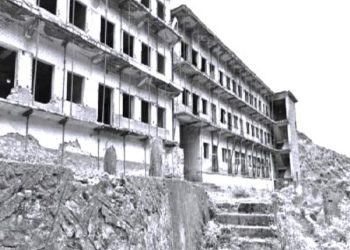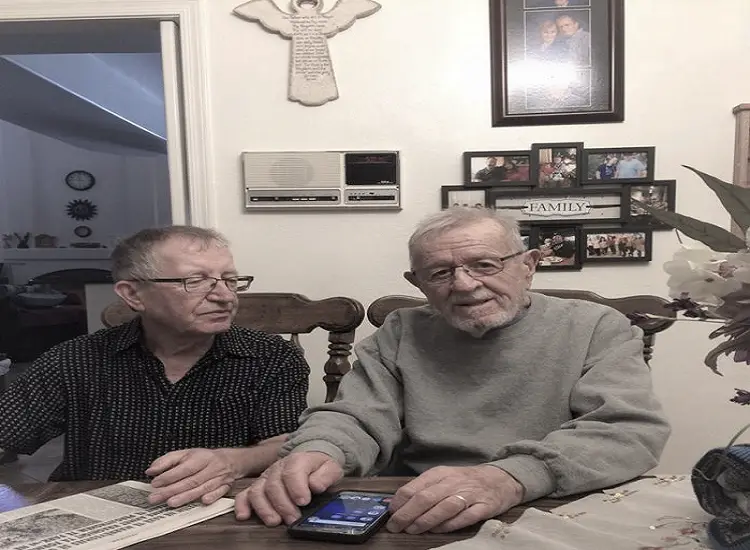By Aldo Renato Terrusi
The seventh part
Accueil
Memorie.al / Fiumicino Airport. Alitalia’s ‘MD 80’ plane is ready for flight. It’s Saturday, November 6, 1993. 11.25am. The commander received approval. The flight attendants remind us once again to fasten the seat belt. The two engines are brought to maximum power, while the noise becomes muffled and deafening. Buttons and controls are tested for the last time according to flight procedures, the brakes are released, the faster and faster movement begins, the acceleration slams the passengers into the back, and the plane takes off. I feel an invisible force lifting me up that leaves me suspended in the void. I look around to see if the other passengers have the same feeling as me. Some read, some look out the window, some are indifferent, some barely sit still and some, frozen in their seats, let their fears show. With a wide change of direction, the plane rises in altitude and heads towards the radio beacon of Bari, then straight to Tirana, our destination.
Continues from last issue
They liked my motorcycle so much that a leader of the Communist Party, Izet Jaho, often borrowed it from me and returned it when he wanted. I was obliged to give way to foul play and not to make a sound, to avoid any retribution. On that occasion, the head of the Albanian Communist Youth, Nako Spiru, a dear friend, with whom we had been at the Italian school in Corfu, came to honor us with his visit, even though he was a few years older than me. I was in the lobby of the “Dajti” Hotel, when he entered accompanied by Albanian police agents who served as his bodyguards. He approached and greeted me enthusiastically in the name of our friendship, and after congratulating me on a splendid victory, asked if he could help me with anything. I then asked him if he could help me with a completely personal favor.
“My brother-in-law, like all Italian bank directors, has been put in prison and while most have been released, he still hasn’t. He has been accused, like others, of having damaged the state’s finances, because he sent Albanian gold to Italy. In fact, he has done nothing wrong and there is no reason why he is being held in prison. There can only be motives of revenge or… exchange… in other words, a hostage”. Naku asked me if I was sure of the words – which I just said. “Without a doubt”, I replied. “I can still stay here, play and work, but send him, along with his wife and son, to Italy. Please, do whatever you can.” He told me he would try to help me.
After a few days, we heard the news of Nako Spiru’s death. A strong feeling of oppression and helplessness blocked my brain, but I had to react and avoid falling into despair and panic. The only friendly person who could help us somehow was dead. The official explanation from government sources stated that: Spiru had accidentally committed suicide with a single shot while cleaning his pistol. Apparently, the regime didn’t like it and they had found a way to get rid of it. He was a communist, but obviously Enver could not honor him because he had shown some sympathy for the Italians… he had even been to school with them. He was given a state funeral with all the honors.”
In the official Albanian historical documentation it is read: “The Minister of Economy, Nako Spiru, expresses dissatisfaction, which partly comes from the Party, due to very close relations with Yugoslavia. Accused of nationalism, Spiru is fired and expelled from the Party, and Hoxha, who is the real author of this initiative, does not lift a finger to defend him. Accused of ‘chauvinist deviations’, Spiru himself is killed in the fall of 1947″. I was already well-known and often the merchants gave me flour, pasta and rice. When we played matches abroad – in Bulgaria, Yugoslavia, Romania – my friends bought women’s socks, shoes, watches and perfumes, which they then sold again. While I bought cocoa, sugar, cookies, honey, etc. When the director of customs checked the bags and saw these foods, he cheered and congratulated me, because he believed that they served me for my sports nutrition regime. On the contrary, I took all these for my family, but especially for my nephew Aldon.
At that time I was engaged to a beautiful Albanian girl called Lule, blonde with blue eyes, and sometimes I brought my grandson to the field during training. Sometimes I heard in the street: Giacomino, Giacomino! I turned around, but they didn’t call me: it was the toads playing among the vedi. Without even wanting it myself, I had become famous. In the 1948 Balkaniad, our coach was replaced by a Yugoslav named Jeskic (if I’m not mistaken). I remember that he spoke French and that I felt quite comfortable with him. Anyway, I conceded two goals in Bratislava and I remember one particularly well, as the ball was diving under the post and I was watching it almost without moving. I felt that I had lost that antagonism of the early years: family worries and lack of motivation did not allow me to give my best in the game. Then, we had to go back to Italy…! What future could I expect in Albania? However, if I remember correctly, we were ranked second after Yugoslavia”.
The interview ended a little after 17.00 and Xhaviti seems satisfied, he hopes it will be broadcast before we return to Italy. On the way to the hotel, we took an unusual walk and took a side street from “Skënderbej” Square called “Rruga e Kavaja”. A very strange and colorful little palace appeared on our right. We all approach with curiosity. It is a two-story building with a central spire; white decorated with red washes at the entrance, around the window frames and on the trellises. We all read in amazement the sign posted on the right column of the railing: “Apostolic Nunciature – Embassy”. Finally we are amazed.
We return to the hotel among the young people who “go around” along the big boulevard. We are waiting for Pierxorxho and Toli, who we have invited for dinner at “Dajti”. As soon as they arrive, we go for an aperitif, while Toli tells us that he has ordered a taxi for the next day – the only possible way to get to Vlora without risking too much. There we will meet the person who was in prison with me and we can see some of the places where we lived a long time ago. We pass by the “Dajti” bar, order Italian aperitifs and sit in the lounge, next to the restaurant, to chat. Pierxhorxho is Italian and has a two-year term as director of Cooperazione, while Toli is a pure Albanian from Vlora, studies at the university, knows Italian very well and is employed full-time at the Embassy. They both know part of our history and are curious about our family’s ironic odyssey.
“So, Aldo, you were born in Albania?” Pierxorxho asks me.
“Yes, of course, in Vlora, in 1945. I can’t wait to see those places one more time, but I don’t think I will remember anything. In my mind there is only some more or less blurred image related to the year 1949, just before we were repatriated”. Toli joins the conversation and continues: “When I told the family that the son of a bank director from Vlora would come to Albania, my mother immediately remembered a beautiful lady, the bank director’s wife.” I am stunned; I don’t know what to say. I can barely muster a smile of approval. Then I ask Toli: “By the way, in Vlora, what time will we meet tomorrow?” “The taxi will come to pick you up at “Dajti” from 09:00 and I will be there myself at that time. I was also interested in the weather; tomorrow will be a wonderful warm day”.
“Good very good. We are lucky”. They call us from the restaurant. Our table is ready. We ordered a good country dish, not too heavy perhaps. They serve us meatballs with rice and meat. It is a typical dish, delicious, with refined taste, maybe not so easy. The following recipe is for six people.
Mix 500 grams of minced beef, 150 grams of rice, an egg, a finely chopped onion, chopped parsley, salt and pepper. Mix well and form round balls the size of a walnut. Half fill a pot with water, and add some butter and salt. As soon as the water boils, we throw in the meatballs and boil them. The sauce is prepared separately. Squeeze two lemons and add two eggs and a bowl of juice from the meatballs. Mix these ingredients together and beat in a bowl. Pour and mix the whole mass over the hot meatballs, but with the fire extinguished. During dinner we talk about Albanian food, about the similarity and origin from Turkish and Greek cuisine. Indeed, these three countries have in common many dishes that represent the typical food of the peoples of the eastern Mediterranean. At the end, they bring us the now traditional glass of brandy. We say hello, leaving the meeting with Toli for the next day.
ON THE ROAD TO VLORA
I wake up very early, it’s not yet 6:00 a.m., while a light light comes in from the shutters and very little noise is heard from the streets. It doesn’t take up much space in my bed. I get up and open the shutters. If the sunny day appears in the morning, then the day will be excellent: not a trace of cloud in the sky. I shower, dress and knock on my uncle’s door.
“Yes, Aldo, come in, while I get dressed.”
“Uncle, we have a long day ahead of us today, I hope we don’t encounter any obstacles.”
“There won’t be, no.”
We go down to breakfast, as usual, we are the only customers.
Spartak hasn’t come to work yet. I look at the clock, it’s 8:00 a.m., but I don’t see a slave leg. After about half an hour, the salon starts to come alive and finally here comes Spartak, who comes back to greet us immediately. “They told me that you are waiting for the taxi to go to Vlora. Don’t worry I know the driver, he is a reliable person. Then, I heard that Toli will also come with you. After a while, Toli came greeting everyone with excitement. Well then, I went to call the taxi driver myself, even though we had ordered him for 09.00, it’s better to be careful ourselves…! We agreed: for the whole day I want 90 thousand lire. “Okay Toli, no problem. Would you like a coffee?”
“No, thank you, we’d better go, the taxi driver has also arrived. We board a run-down taxi, where Toli serves as guide and translator, because the driver doesn’t speak Italian, although he understands quite well. The route covers about 40 km. of the only road that connects Tirana with Durrës – which is located towards the west in the sea – and then continue along the coast around 100 km towards the south, to Vlora.
The blue of the sky is strong, the temperature warm, almost hot, even though it is November. An undoubtedly exciting day awaits me: I will return to the places where I was born and where my family has gone through many difficulties. The road is flat, in some segments adjacent to the railway, which is not electrified and is therefore traversed by large fuel locomotives.
Some trains run very limited routes because they only have one track and mostly carry freight and the occasional wagon full of passengers. In fact, along the almost 100 kilometers that the road runs alongside the railway, we encounter only two trains. Everywhere we see countless bunkers directed against the ‘western enemy’, near factories, near cultivated fields, on streets and squares, sad evidence of a warlike past. They are of different sizes – from three to ten meters in diameter – and they are heaps. I ask Toli how many of these half-spheres of cement can be that have invaded the landscape.
“More than 700 thousand, spread more along the coastline”, he answers me.
Absurd! How much wasted money, while Albanians die of hunger! We are often forced to slow down or
We stop because there are very large trucks coming in the opposite direction that remind us impressively of the trucks of the last war. They could probably be the same.
“Pozeli, how come you happened to be in Vlora?” asks Toli, while the driver makes his way through the obstacles. “I fell to work after…! After getting married, Xzepe moved to Vlora as a bank manager and Aurelia went with him. Their position was very high, they had service personnel, an apartment on the first floor in the same building where the bank was located, and they were associated with important people.
Parallel to the transfer of Xhuzepa to Vlorë in 1938, my mother, Vitalianoja, also went with the family from Gjirokastra to Kučovo, where several construction sites had been opened near the box mines. Near the oil extraction area, in Selenica, an Italian company, AIPA (Azienda Italiana Petroli Albania – Italian Enterprise Petroli Albania), had started work on bitumen extraction. My father was assigned the undertaking of maintaining the houses of AIPA employees. He personally supervised the various works, such as: carpenters, mechanics, builders, electricians, etc.
A year later, he was called to Vlora by professor Spineli, who believed in the expansion and reconstruction of the Italian hospital, where he was the director. Within a very short time, Vitaliano built a new enterprise, teaming up with an engineer, bought materials and bricks from Italy for several million lire, and managed to complete the works on time – a remarkable event considering the circumstances. During surveillance in Gjirokastër, in the capacity of an adviser to a regime enterprise, Vitaliano had an accident – the car’s tailgate opened and he fell. I went to mine as early as possible, accompanied by a friend with a ‘Guci 500’ engine, which was given to me by an engineer who worked on the construction of the Italian water supply.
When I went to see him, Vitaliano had a hematoma in his gall; had to be rushed to the hospital. The head of the government enterprise, named Dermaria, lent us a small military truck and so we went to the hospital to Dr. Spineli. Vitalianoja survived, but lost part of her hearing. As a result, he had balance problems and unfortunately, from that moment on his work activity suffered a major decline. In the same period, Karmeni met Mario de Kavero – deputy director of a sector of AIPA. They married in 1939 and went to live in a villa that the company provided for free to the director and his deputy. Mario and Karmeni had a son, Lilinon, the son died at 18 months of dehydration; the boy had diarrhea and the doctors did not know how to treat him. The little one was buried in Vlora.
Vitaliano rented a villa next to Giuseppe’s bank. The whole family, for various reasons, was reunited once again in Vlora; already part of it was also Ida, the younger sister of the mother, who had asked to shelter her and her ten-year-old son Domenik. The winds of war were getting closer, but we lived relatively well and were content with the lives we led. Xhuzepeja, very busy with his work at the bank, used to go from Vlora to Tirana, because often administrative work was added to that of the representative office. Consul Savoni and his countess wife had made a habit of inviting Giuseppe, Aurelia, Mario, Carmen, Emma and Vitaliano to the Consulate almost every week to play bridge.
Receptions, meetings and dance parties were often organized in honor of high-level Italian politicians and military men who came to visit Vlora. In April 1938, King Zog I married Countess Geraldine Aponi de Nagiaponi, a half-Hungarian, half-American Catholic lady. King Zog I personally invited Giuseppe and Aurelia to the gala dinner in Saranda, on the occasion of his wedding with Geraldine. The guest of honor at this reception was Galeaco Cano. For me and my father, the greatest fun was when we went hunting with our hounds. I remember especially when we went near the sea, in a swampy area full of holes – as a result of the bombs falling during the war – which was very populated by ducks. One day a desert pelican came before me and I shot it; that was the only hunting mistake of my life – pelican meat is not edible – but I was young then and took it home as a trophy.
Once we made fun of Giuseppe, who every time he went hunting, he never managed to catch anything. I hid a rabbit and tied it behind a bush, then, very seriously, we organized another hunting session and directed Giuseppe to the place where I had hidden the animal. When he saw the rabbit, which in fact was not moving at all, he killed it, but when he went to get it with all his pleasure, he saw the rope with which he was tied. It all ended with explosive laughter and his wish was to be photographed with the only prey of his life as a hunter. I still remember when we didn’t have the hounds and there were only four of us – like a few to hunt wild boar – but we decided to try it once anyway. Memorie.al
The next issue follows




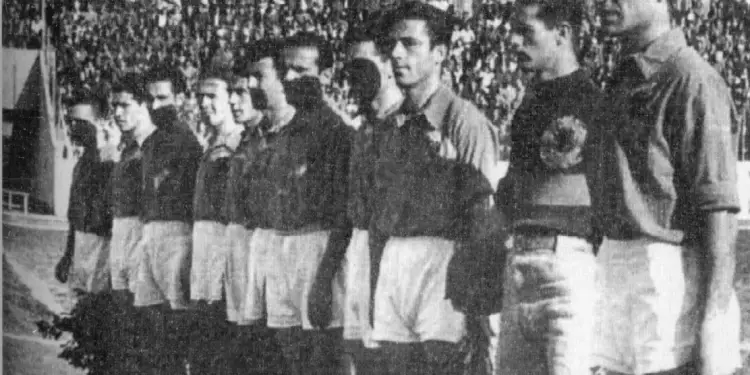
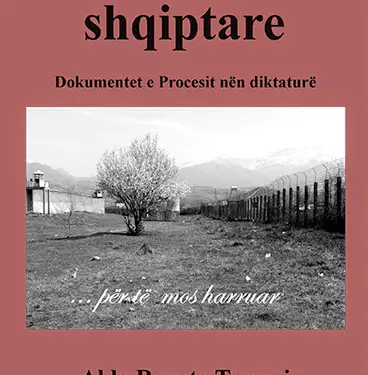
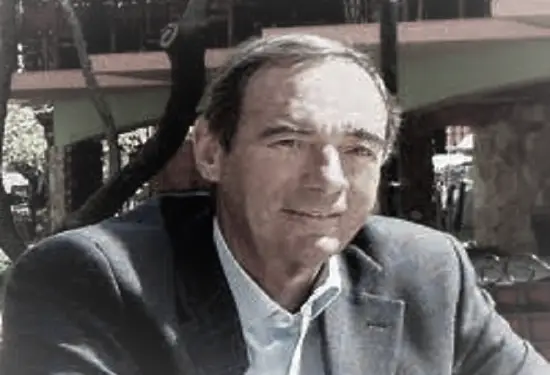
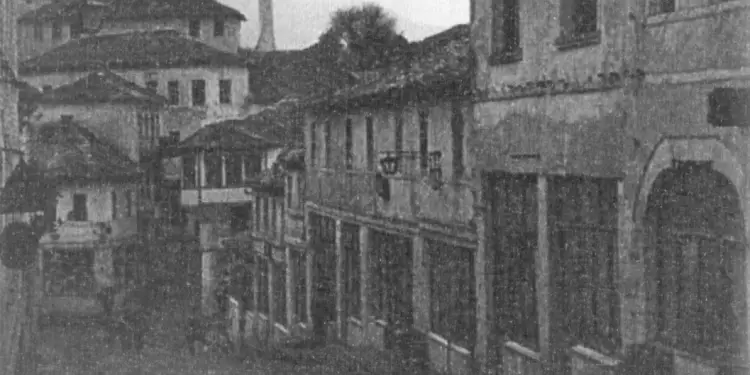
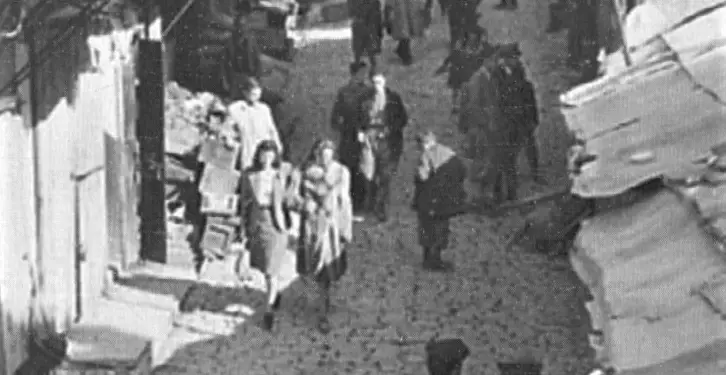
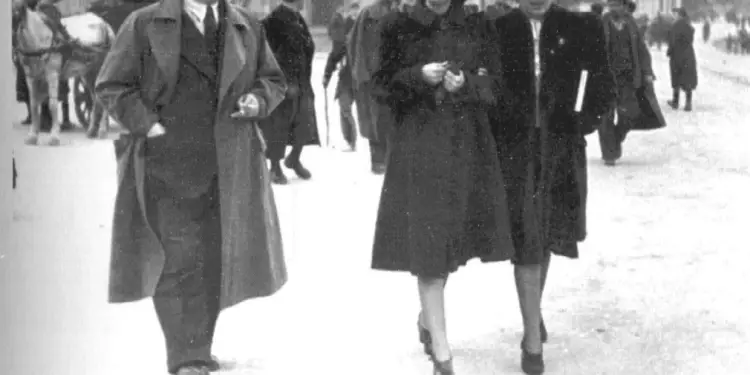
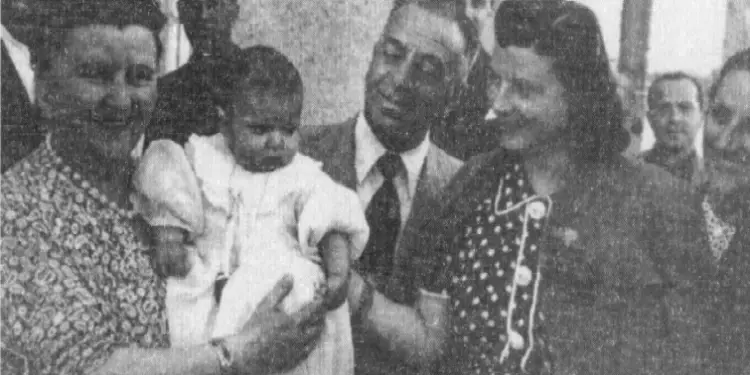
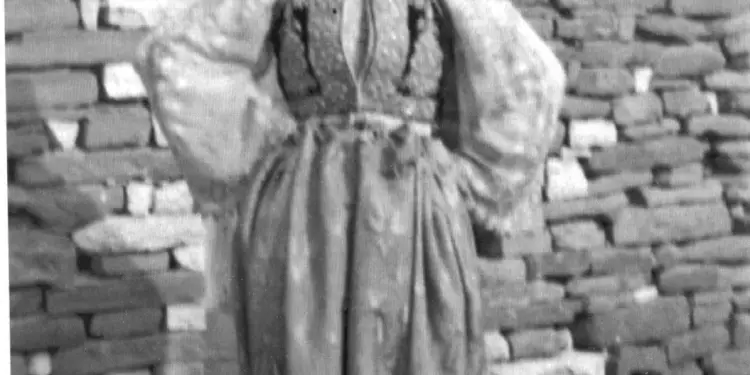
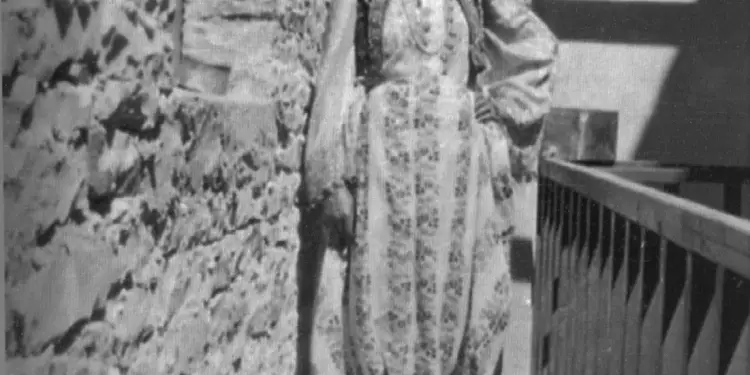
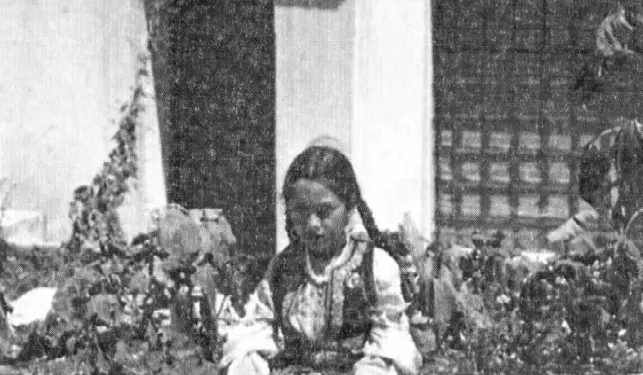
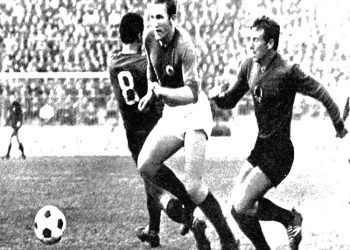
![“In an attempt to rescue one another, 10 workers were poisoned, but besides the brigadier, [another] 6 also died…”/ The secret document of June 11, 1979, is revealed, regarding the deaths of 6 employees at the Metallurgy Plant.](https://memorie.al/wp-content/uploads/2026/02/maxresdefault-350x250.jpg)



